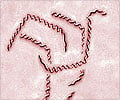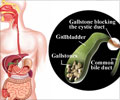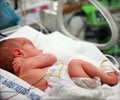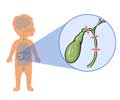Causes of Neonatal Jaundice
Excessive red blood cell breakdown, and/or an immature liver are the reasons for Neonatal Jaundice.
Neonatal Jaundice can develop due to the following physiological reasons:
- Newborns have a high RBC volume and their breakdown increases the quantity of bilirubin in the blood.
- The newborn's liver is not adequately mature to process the excess bilirubin.
Other causes include:
- Blood group mismatch - ABO and Rh incompatibility
- Abnormalities in the shape and function of RBC leading to increased breakdown
- Extensive bruising during birth
- Cephalohematoma
- Congenital infections, e.g., Toxoplasmosis, Rubella, Cytomegalovirus, Herpes Simplex, Syphilis etc.
- Infection (Hepatitis B) or other defects in the liver that impede the elimination of bilirubin
Breast-feeding can increase the chances of an infant developing Neonatal Jaundice. In a poorly feeding baby, bowel movements are infrequent and this prevents the bilirubin from being excreted in the stools. Mothers should, therefore, increase the frequency of breast-feeding in order to facilitate passage of stools. However, sometimes, high levels of a hormone present in the breast milk can interfere with the processing of bilirubin. In such cases breast-feeding may need to be interrupted till the bilirubin levels come down to normal.


















